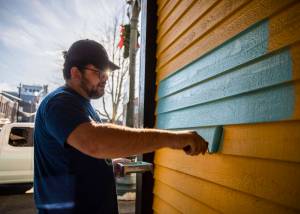U.S. adoption of tsunami orphans unlikely
Published 9:00 pm Thursday, January 6, 2005
Katherine and Barry Hart were ready to welcome a second adopted child from Guatemala to their suburban Atlanta home when they saw a greater need in the faces of the tsunami orphans on their TV screen.
“My heart just breaks with those pictures. I called my social worker this morning and said, ‘Hold on, I don’t know if we want to do Guatemala anymore. Let’s try Thailand,’” said Katherine Hart, who adopted her 2-year-old daughter, Jayden, last winter. “I would love to be able to take in even more than one of those children.”
But when Hart jumped online, she quickly learned, like thousands of other disappointed couples, that her dream would be next to impossible – at least for the time being.
The State Department has ruled out, for now, the adoption of children from the stricken countries, which themselves are clamping down – partly out of fear of sex trafficking and child slavery. Several Western European countries are following a similar policy.
Government and adoption officials say that because of the chaos in the disaster areas, it is going to take some time to identify which children are orphans. Also, they say the preferred practice in a crisis is to place orphans with relatives in their homeland.
“A child whose family has been ripped away by a wave, probably the last thing they need to do is be rushed away to some foreign country,” said Cory Barron, spokesman for the St. Louis-based adoption agency Children’s Hope International. “We have to think of the child first.”
The department and international adoption agencies caution that many parentless children may be claimed by aunts and uncles, grandparents, even distant cousins in cultures built on strong family bonds. The rest will probably be adopted by families in their native countries or watched over by protective neighbors and friends.
Also, the countries worst affected by the tsunami – India, Indonesia, Sri Lanka and Thailand – have strict laws governing foreign adoptions.
Malaysia, a predominantly Muslim country, does not authorize foreign adoption by non-Muslims and rarely allows nonrelatives to adopt, according to the State Department. Indonesia rarely adopts to non-Muslim parents. Both nations require prospective parents to live in country for at least two years before adopting.
The State Department said this week it that will not allow the adoption of tsunami orphans for “many months” and will do so “only if and when these countries decide to make these orphans available for international adoption.”




